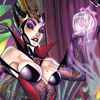Sign in to follow this
Followers
0

Beaver Moon, Yules, and One Lonely Unicorn...
By
wickedgoddess, in Announcements

By
wickedgoddess, in Announcements